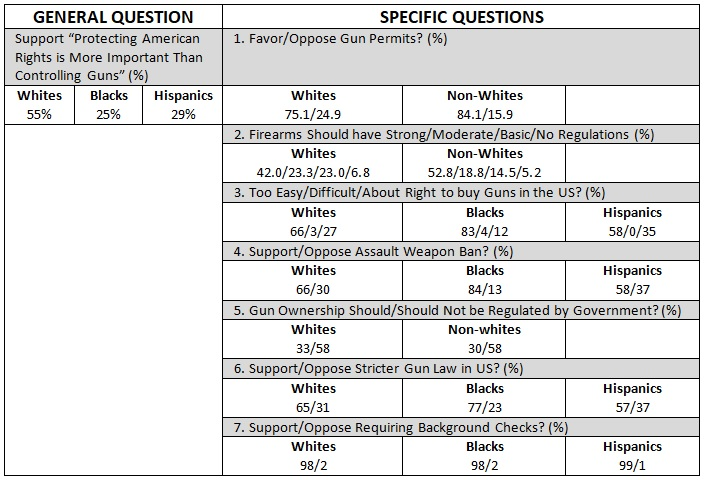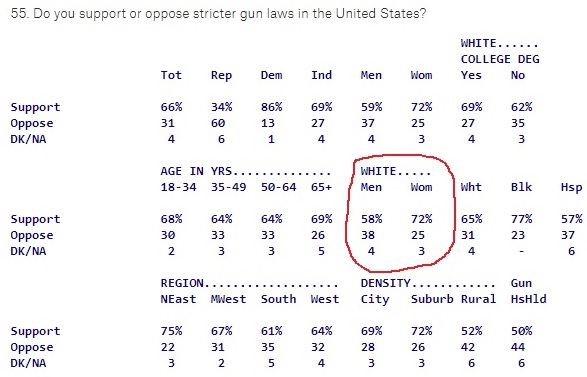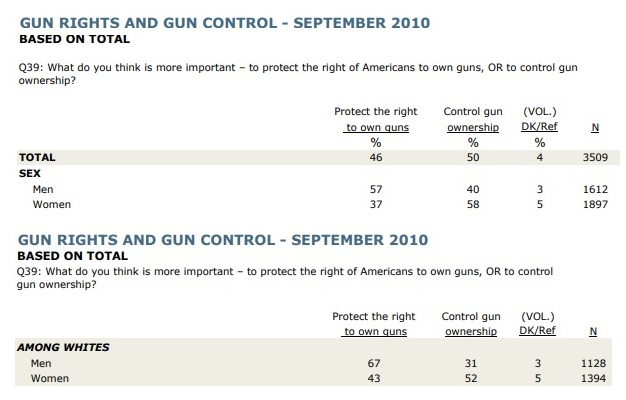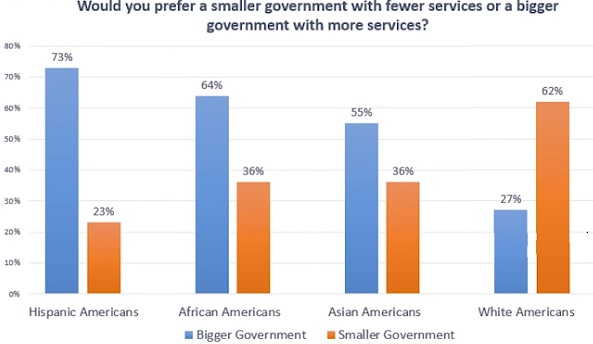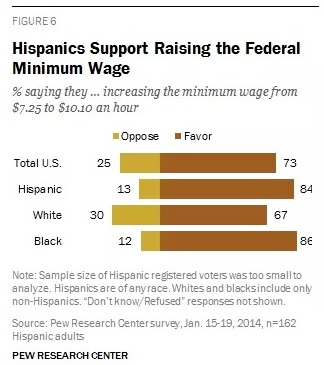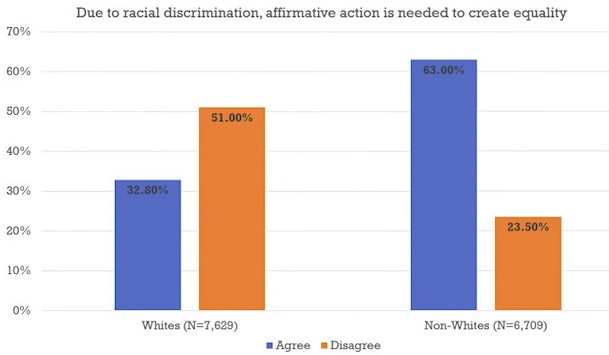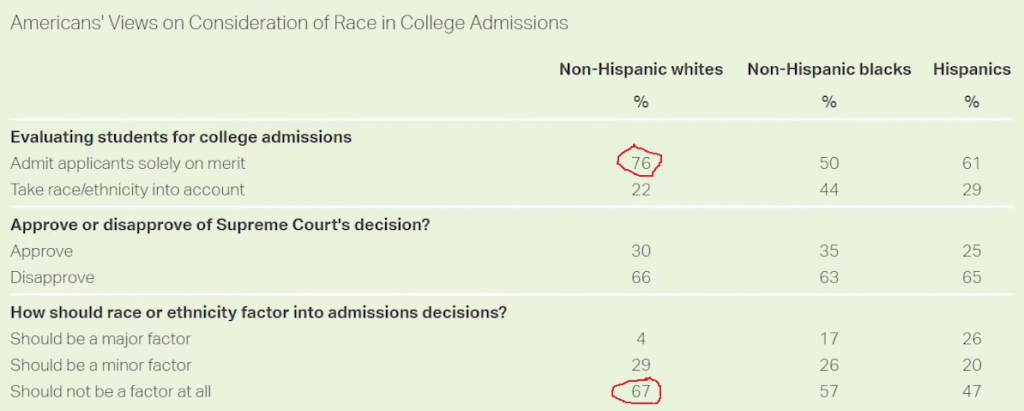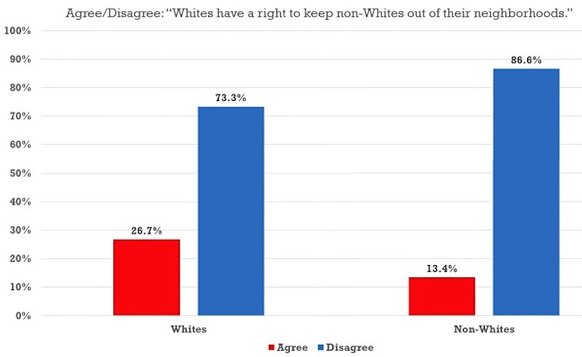Debunking Ryan Faulk
Posted By Spencer J. Quinn On In North American New Right | Comments DisabledSo Ryan Faulk has come out against White Nationalism – but we already knew he would sooner or later.
Faulk is a race-realist blogger who runs the influential, data-driven site, The Alternative Hypothesis [2]. He and his frequent collaborator Sean Last have been writing about racial matters from a more or less pro-white perspective for the past decade. Yet Faulk is and always will be his own man. Where other Dissident Right luminaries such as Kevin MacDonald, Jared Taylor, Millennial Woes, and Greg Johnson promote intra-racial loyalty among whites, the greatest loyalty Faulk seems to show – at least at this point in time – is to conservatives and smart people of any race. In other words, even if whites were truly a mediocre bunch, MacDonald, Taylor, and the rest would still identify as white and push for what they think is best for whites as a racial constituency. You love your own not necessarily because they are always stellar, but because they are yours.
Faulk, however, seems to attach conditions to his identity . . . well, at least nowadays he does. In his recent video, “Discarding Pan-European White Nationalism, or Taking the European Revolution Seriously [3],” he claims that he identifies with what he calls the “First World strain”:
The highest concentration of this, we’ll call the “First World strain” that originated in northwest Europe, is I believe in the United States today in the Anglo-American population. This Anglo-American ethno-religion, which has come to be called conservatism, is the child of the European revolution and the father of the Industrial Revolution, and hence the modern world. My error was confusing this with all whites, thinking that is, in a way, the true expression of white people generally. But no, it’s the expression of the First World strain, that is most concentrated today in Anglo-Americans but originated in the North Sea area. And so I see this as my people, or at least the people I identify with.
From his wording, Faulk seems to choose this particular subset of whites as his identity base rather than claim it due to his ancestry or genetic makeup (whether or not he’s actually descended from such people, I have no idea; nor does it seem germane to his point). It’s as if he looks at the data, points to the best group he can find, and announces, “I wanna be with them!” And this is fine. But it is how he treats the remaining whites where he runs into trouble.
Faulk starts his video with lots of data, and then draws what I think are hasty conclusions from this data. These conclusions eventually become the axioms in his anti-White Nationalist argument, on which he elaborates towards the video’s end. These axioms include the idea that “whites have almost no racial solidarity” and that non-First World strains of whites “think and vote more as other racial groups do.” For Faulk, such differences among whites break down white identity and make a pan-European White Nationalism in America unworkable. I will try to demonstrate, however, that what’s unworkable here is Faulk’s methodology, not White Nationalism.
The first hasty conclusion Faulk draws is that, when interpreting poll data, specific questions override general questions. Here’s the pattern: He presents poll data based on general questions which do not support his anti-White Nationalist position. Then he presents poll data based on more specific questions which do support his anti-White Nationalist position. Then, without exactly saying why, he assumes the latter questions get to the heart of the matter better than the former questions do. From this, he draws his conclusions and moves on.
But what if the general questions also get to the heart of the matter? In some cases this is true, because the specific questions do not refute or counterbalance the general ones at all. For example, at the 1:17 mark, Faulk produces a graph showing how whites are overwhelmingly more likely than non-whites to support “protecting American rights” over “controlling guns.” Immediately after, however, he produces data showing how whites and non-whites have less divergent opinions on specific gun issues. But do these specific questions really outweigh the general one? Let’s break it down:
Right off the bat, we see that specific questions 1 and 7 are pure filler. How one feels about permits and background checks have nothing to do with how one feels about gun rights versus other rights, which is the point of the general question. Most gun people are not going to object to taking a weekend-long class to obtain a concealed-carry permit or wait seventy-two hours for a background check. Sometimes the law gets it right, and gun people realize this. The same goes for Question 5, since permits and background checks can be seen as a form of regulation.
Question 2 actually undermines Faulk’s anti-White Nationalist position. Observe: 53.1% of whites support either moderate, basic, or no regulations on firearms, as opposed to 38.5% of non-whites. 53.1% is very close to the white figure of 55% in the general question, isn’t it? So why is Faulk dinging white people for this? And does it really matter how non-whites poll as long as whites hold the conservative, pro-gun line he wants them to hold? Whites certainly have no control over how non-whites answer poll questions. If anything, this specific question shows an improvement for non-whites rather than a degradation of the white position.
Question 3 is purely speculative and has nothing to do with how one feels about gun rights vis-à-vis other rights. I’m a gun owner and a big proponent of the Second Amendment and I feel that perhaps in some cases it’s been too easy for the wrong person to purchase firearms. The system isn’t perfect, mistakes have been made, and, sadly, things slip through the cracks. Supposing we added additional layers of background checks to help prevent this sort of thing from happening? One can agree to this extra level of difficulty and still hold gun rights sacrosanct.
As for Question 4, most people don’t even know what an “assault weapon” is. Often, the authorities don’t, either [5]. I am highly suspicious of such questions unless the person answering the questions really knows their firearms. Was this the case with the poll Faulk cites? Sure, Bill Clinton’s Assault Weapon Ban was a bad thing, but to be able to explain why requires a level of understanding that goes beyond even your average gun owner. I find very little meaning in this question.
Question 6, however, presents the best evidence Faulk has with regard to gun rights. If 65% of whites believe that gun laws should be stricter, then clearly that shows a growing disapproval of gun rights among the people who invented them. But there are some wrinkles here Faulk doesn’t tell us about. First, of the respondents in the Quinnipiac Poll [6] that he cites for Question 6, only 22% were self-identified Republicans [7]. 33% were self-identified Democrats, and 39% were self-identified independents. Further, of these “independents,” 69% plopped for stricter gun laws, so one has to wonder exactly how independent they really were. After all, I’m sure many Communists, Green Party members, and Antifa types stray beyond the Left flank of the Democratic Party, and therefore would consider themselves “independent” despite having pulled the lever for Hillary in 2016. Based on this, we should expect a leftward skew of the poll’s results, and it would have been nice if Faulk had admitted as much up front.
Second, although the poll has an N of 1,249, it doesn’t tell us how many respondents were white, black, or Hispanic. The poll only provides percentages within each racial group. So the black and Hispanic N counts could have been below 50, for all we know. In fact, the data itself suggests that the black and Hispanic N counts were pretty low. The overall breakdown for this question is suspiciously similar to the white breakdown (66-31-4 vs. 65-31-4). This indicates that either there were some remarkable coincidences in how all three races answered their questions, or that there just weren’t enough blacks and browns to make much of a difference. Another indication is the poll’s methodology. Quinnipiac broke whites down by sex and college education, but not the others. Does this mean that such distinctions among blacks and Hispanics would have cut the numbers so low as to be statistically insignificant?
Third, the poll came out on February 20, 2018, a mere six days after a deadly mass shooting at a high school near Boca Raton, Florida. That could be the reason for the white desire for stricter gun laws. The assistant director of the poll, Tim Malloy, actually stated as much: “If you think Americans are largely unmoved by the mass shootings, you should think again. Support for stricter gun laws is up 19 points in little more than two years.” So, according to this logic, if we have a long period of no mass shootings, then this support for stricter gun laws among whites will diminish. Indeed, Quinnipiac shows the Support/Oppose split on stricter gun laws was 47/50 as late as December 2015. And this is for all races, not just whites, so one must assume that these figures would diverge even more when looking only at whites.
Lastly, Faulk neglects to mention how women always skew things left. Have a look at the actual breakdown for this question:
When looking only at white men, things look a little rosier, don’t they?
Here’s a Pew poll from 2010 [9] that reveals even more:
So perhaps Faulk’s problem is not so much with non-First World strain whites, but with non-male whites? Would he support pan-European White Nationalism if women were denied political rights? His data-driven logic would force him to say yes unless he declares himself a committed suffragist. He doesn’t bring this up in his video, though, so I would like to hear what he has to say about it in any case.
Faulk goes to the data well numerous times in the first half of his video. He compares poll responses of whites to non-whites with regard to free speech, health care, economics, affirmative action, and other issues, and tries to demonstrate how similar they all are. But he makes the same two mistakes over and over again:
1) He assumes that more specific questions outweigh or invalidate more general ones.
2) On the specific questions, he looks at the white/non-white split rather than absolute changes in the white position.
For an example of his first mistake, at the 1:41 mark, Faulk says, “On the economy, if we’re talking platitudes, there’s big racial differences. But on specifics, the racial gaps are much smaller.” Here’s the big racial difference he mentions (and it’s big):
So, 62% of whites prefer “a smaller government with fewer services” versus an average of 32% for non-whites. Nice. But when contemplating specific policies, it’s less so, apparently. The only evidence Faulk provides for this, however, is the following Pew poll from 2014:
So whites are still the best when it comes to the economy, but only by virtue of being less bad than the others. But how is raising the minimum wage necessarily the opposite of having a smaller government with fewer services? One can support a higher minimum wage and a smaller government at the same time. So then why does Faulk want us to forget about the general question and look only at the more specific question? Further, for a video that offers so much data, why does he only offer one piece of evidence to support his argument on the economy?
For an example of the second kind of mistake, here is the breakdown of the general question about affirmative action (2:19):
This looks pretty good for whites, right? At one point in his video, Faulk says, “I’m just sick of sticking up for people that won’t stick up for themselves.” Well, here is an example of whites doing just that, no? In his next slide, which asks more specific questions, however, he attempts to refute this idea by showing how non-whites improved in their positions on affirmative action, thereby closing the gap with whites.
But he neglects to mention how whites also improved. Observe:
See those red circles? The numbers they contain are significantly larger than the 51% from the first slide. How can Faulk justify his dismissive attitude towards whites when the data he himself cites actually flatters white people? Also, how can we trust Faulk’s methodology when he neglects to mention such inconvenient (not to mention obvious) facts himself? “On affirmative action, there appears to be a very big racial difference,” he says. “However, this difference is reduced once you get to more concrete questions.” So what? If the point of all this is to show how whites neglect to vote or think in their own interests, what does it matter if non-whites come to their senses about affirmative action? How does the above table reflect negatively on the capability of whites to one day act in their own racial interests? Faulk’s sleight of hand is to say that because the split is closer, whites share some of the anti-white (or anti-conservative) attitudes of non-whites. And that’s just not true.
What’s worse, Faulk doesn’t always seem so honest. At the 1:03 mark, he says, “For freedom of association, both whites and non-whites oppose freedom of association or whites. Now, whites, to a lesser degree. But even whites overwhelmingly oppose the right of whites to have their own spaces.” For someone not inclined to drill down into the data, this sounds bad, doesn’t it? Well, not so much when you look carefully at the slide:
The prompt here (“whites have a right to keep non-whites out of their neighborhoods”) is frankly ridiculous. For one, whites currently don’t have such a right, according to the law. So answering “Agree” would be factually incorrect. Secondly, such a question does not necessarily touch upon freedom of association. A white person can “associate” only with whites and still have non-white neighbors. Who says one must “associate” with a neighbor? That Faulk equates kicking non-whites out of white neighborhoods with the euphemistic “freedom of association” indicates he’s not thinking terribly hard about the data he’s compiling. Either that, or he’s deliberately misleading his viewers.
Of course, this is not to say that Faulk gets it all wrong. He and Sean Last are good researchers. They raise valid points and make interesting and insightful arguments. As painful as some of his ideas are for White Nationalists or advocates, they offer a valuable contribution to race-realist literature and must be addressed. Indeed, “Discarding Pan-European White Nationalism” is a must-see video. And, to his credit, Faulk produces some damning data about how blind whites can be to their own racial interests. But we already knew this.
Faulk:
The point of this is not to say, “Oh, how wonderful Hispanics and blacks in the United States are.” It’s just to show how unexceptional whites are. Yes, whites are a little better on every issue, but not to such a degree that one should base an entire political ideology around the superior political views of whites versus non-whites, at least in the context of the United States. If you want to say it’s about my people right or wrong, okay. But I will have to call into question whether they really are your people if they don’t care about their own existence and think that steps taken to preserve their existence and sovereignty are hateful and bigoted, and you’re demonic for even proposing such things.
This is problematic on several levels. First, I have demonstrated reasons why we should not trust Faulk’s sources, and fault Faulk himself for his lack of skepticism towards some of these sources. Whites are not as self-defeating as he is making them out to be. Second, Faulk is being a little hyperbolic when he says that whites don’t care about their own existence. One can care about the existence of his own race without identifying as a member of it. There’s nuance here that Faulk is just gliding over.
Finally, and most importantly, he seems to have a complete lack of faith in metapolitics and how positions change over time. These same survey questions certainly would have produced vastly better results for whites 50 or 70 years ago. So, what’s to say they won’t produce vastly better results for whites 50 or 70 years in the future? This is the kind of change that sites like Counter-Currents are trying to effect. We’re hoping either to change minds or provide a community for people whose minds have already been changed by history or experience. As this community grows, so will its influence and scope.
Hopefully, as more and more whites become aware of what is happening, whites as a group will begin to act in their own racial and evolutionary interests again. Impossible today, yes. But unless Ryan Faulk has a crystal ball, I don’t see how he can say it will be impossible tomorrow.
Spencer J. Quinn is a frequent contributor to Counter-Currents and the author of the novel White Like You [16].

